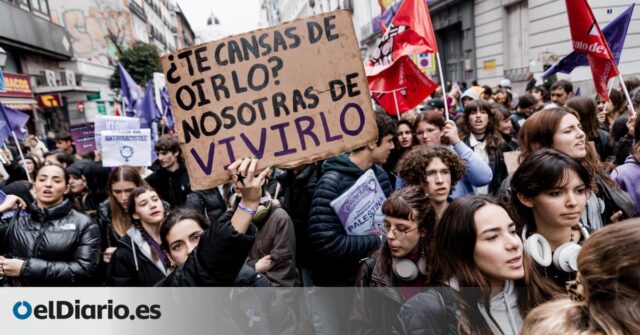In 1993, 69.3% of young people aged 18 to 24 agreed with the concept of feminism. Thirty years later, this percentage has decreased significantly, and only 40% of young people at this age are leveled with equality policy. This follows from the study of the Institute of Political and Social Sciences (ICP) presented this Thursday in Barcelona.
The report confirms the growth of “neo -corridors” of ideas and performances created and expanded by social networks that adolescents affect. Research is trying to find out how young people are related to feminism. And also analyzes the gender gap between children and girls, from a high -quality examination of 239 adolescents aged 14 to 15 years, owned by nine state and private educational centers in the province of Barcelona.
“Young people have two worlds who live together, but they do not communicate: they have a detachment of feminism, and they reflect more inequality,” said the coordinator of the genus and policies ICPS, Maria Fraixete.
This researcher pointed to social networks and speeches, which are viral and who consume small children. “These speeches are political and show male victimization that covers them inside,” he said.
In these speeches, the male position is based on thoughts that disagree with reality, according to the authors of the study. Many of these boys think that there are laws that offer a great privilege for women, and this causes an inequality that actually harm men and feel unprotected and discrimination. “Children believe that they are victims of the past feminism,” said the political scientist and member of the ICPS projects, Jose Bern.
“You turn. Being a man is bad. For feminists now, if you are a man, they think that all men are bad, rapists, macho, ”says a teenager interviewed for the sample.
In this sense, Freixenet contributed to the fact that adolescents support speech, “which always comes from one place”, although he added that these ideas are not always translated into sexist practices. “Of course, more than his father made at home, and much more than his grandfather,” he concludes.
Fear of sexual violence
In the case of the girls, which is the most worried about them, it is inequality, and sexual violence. This emphasizes that they support concern, which is simply experienced, while they are more concentrated on performances that borders on politics and legality.
“The fact that the girl cannot calmly follow the street, be afraid or tell her to see how she dresses, when she comes out, it seems worse than inequality,” one of the young participants in the project sample suggests. Other certificates confirm that he is afraid to go out: “Children stay until three in the morning, I would not laugh or left me my parents.”
“Girls are afraid of sexual violence that they can bear, which they suffered, or the one that they know, thanks to the indications, is especially the fear of what is happening later: to judge or not, difficulties with this …” – said the ICPS researcher, Yana Preus.
In general, adolescents experience a crisis in which loneliness and uncertainty are distinguished in the future. “They believe that they will be more discrimination compared to them,” the village added. “This adds to growth from the extreme law and other problems, such as climate change, they do not know what awaits them, and less in the field of equality,” he finished.









